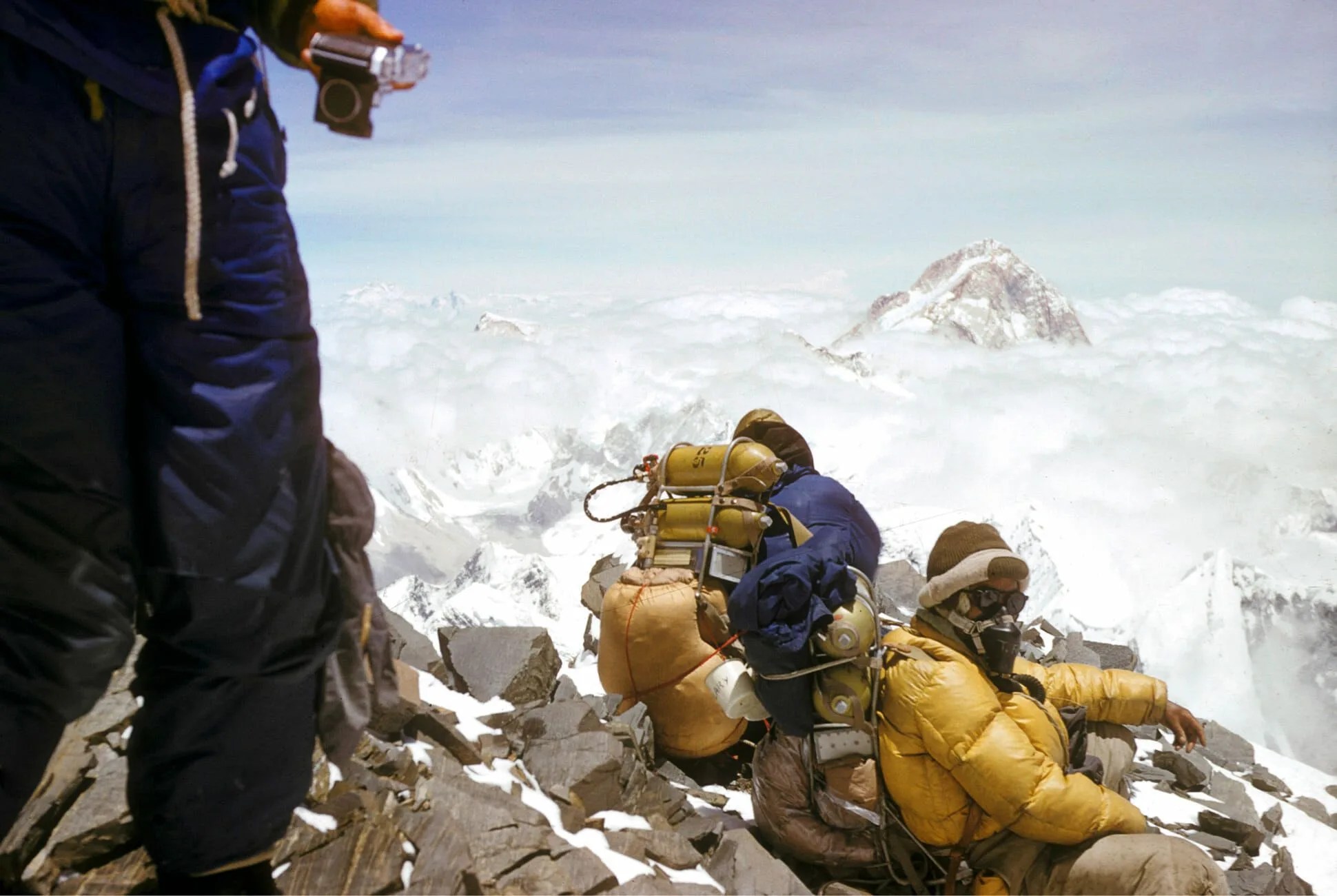There are few stories that most everyone knows, but this is one: On May 29, 1953, Sir Edmund Hillary and Sherpa Tenzing Norgay climbed 29,029 feet above sea level to become the first humans to reach the summit of Mount Everest. The feat was soon beamed across the planet to every room with a radio, and the accomplishment remains lauded as one of the most important moments in the history of exploration.
Hillary treated the matter more stoically. On returning to base camp he reportedly turned to New Zealander George Lowe, a member of his team’s advance guard, and said, “Well, George, we knocked the bastard off!” In celebration, Lowe offered Hillary a cup of soup.
To accomplish something first is to assert your claim over it forever. In a 1999 interview with Outside magazine, Hillary said that “doing something for the first time, something that nobody has done before, is perhaps one of the most exciting things that can happen to anyone.” But what happens when there aren’t any firsts left? Without the allure of novelty, do unthinkable athletic achievements lose their shine?
Kílian Jornet, one of the world’s great ultrarunners, doesn’t think so. “Even if you climb the same mountain every day, conditions are different,” he said. “Different routes, styles. It can be as different as you want.” Born in 1987, Jornet came into the world after its most famous mountains had been summited, so he tasked himself with getting there fastest. During his multiyear Summits of My Life project, Jornet set speed records on many of the world’s most iconic peaks: Mont Blanc (4:57), Matterhorn (2:52), Denali (11:48), Aconcagua (12:49) and Everest (26:00, without ropes or supplemental oxygen).
Many of Jornet’s FKTs — fastest known times — have since been bested, but he’s not trying to leapfrog back in front. He describes his method as “a progression to be able to climb at high altitude in a minimalistic way … a way to learn and test.” You get the feeling that Jornet’s sense of accomplishment comes from having done it, having ticked something off the list. That it’s enough to have once claimed a record, even if it no longer stands.
But “first” can hold more nuance than the word’s flat finality suggests. Twin sisters Nungshi and Tashi Malik, from Haryana, India, became the first siblings to conquer the Seven Summits, the tallest mountain on each continent, and the Explorer’s Grand Slam (which adds the North and South Poles to the endeavor). Their reason for braving the famous expeditions go beyond personal achievements.
“While we climbed Everest in 2013 purely for fulfilling a personal mountaineering dream, our quest for the Seven Summits was inspired by the cause of the Indian girl,” Nungshi says. She describes Haryana as “one of India’s most conservative” states, and says a cultural desire for sons over daughters has produced widespread female feticide. The pair raised awareness for the mission through sponsors and on social media with the hashtag #mission2for7.

